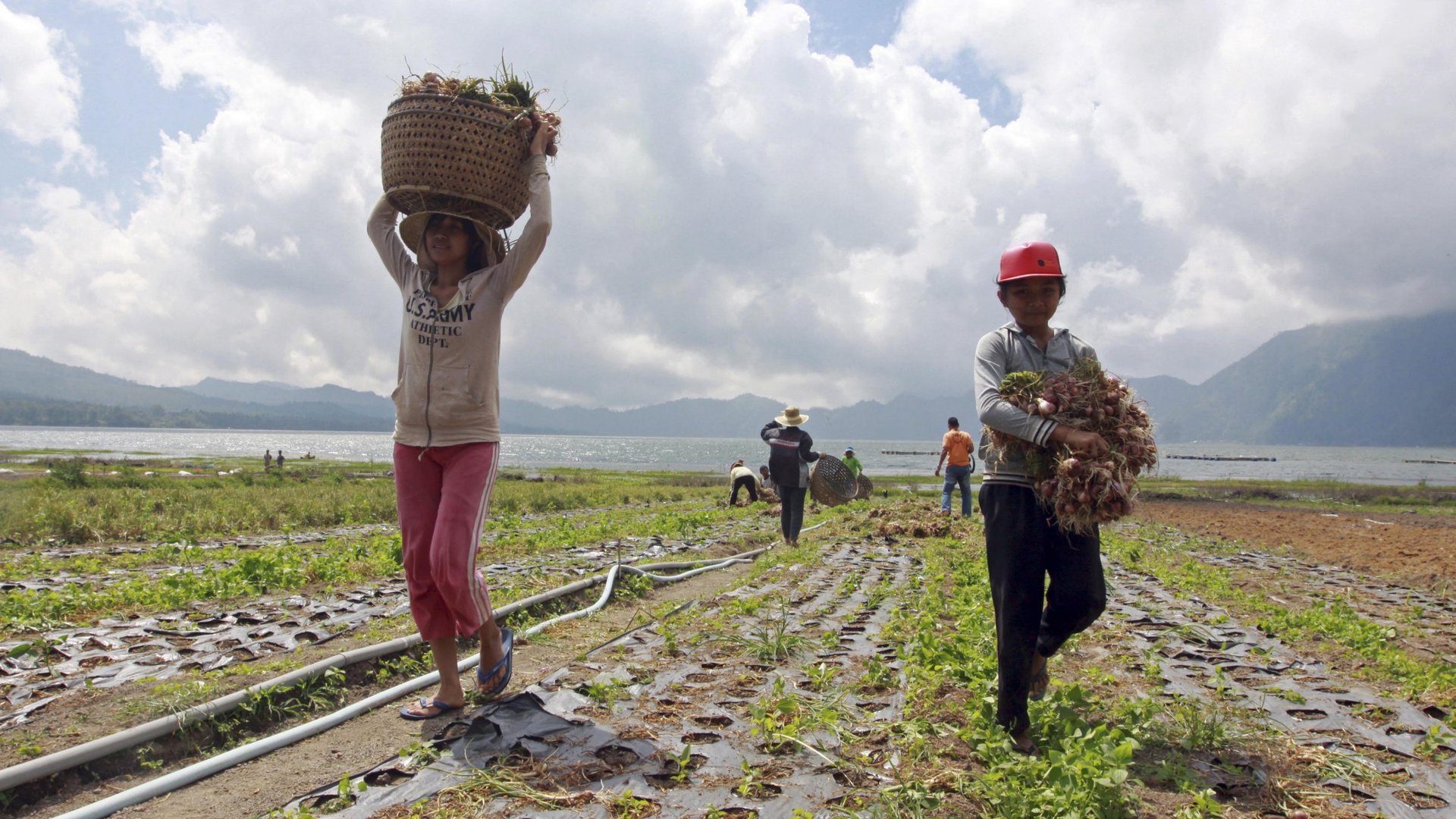The price of onions is making Indonesians cry, steal, and scapegoat
The price of onions in Indonesia has soared so high that people are resorting to stealing the crop. Farmers are spending nights in their fields to ward off thieves.


The price of onions in Indonesia has soared so high that people are resorting to stealing the crop. Farmers are spending nights in their fields to ward off thieves.
But while they cry over lost onions, government officials seem more concerned with finding a scapegoat for the extended spike in onion prices. A paltry 10% of Indonesia’s onions are grown domestically; they cost 10,000 rupiahs ($1.26) per kilogram, up 400% from the end of last year.
Indonesia is hardly the only country where the price of onions—a staple of Asian cooking—matters so much. A popular book titled The Price of Onions by Ashok Desai maintains they are at the heart of understanding the Indian economy. A more recent article in the Times of India refers to doubling prices as “the Great Onion Robbery.”
That’s just a metaphor, though, for how consumers feel. In Indonesia, they’re literally stealing onions. Normally, farmers would be cashing in on rising prices, but the burglars are putting a damper on that, according to a report by the Straits Times in Singapore.
The paper cites a directed attack by the coordinating minister for economy:
Mr Hatta Rajasa, bluntly told reporters at the sidelines of an official trip in Yangon, Myanmar: “The fault lies with the Agriculture Ministry… and the trade system needs to be overhauled.”
Meanwhile, another piece in Bisnis Indonesia, a daily newspaper based in Bahasa, points out that the head of Indonesia’s Chamber of Commerce, Suryo Bambang Sulisto, has openly blamed rising onion prices on the market’s largest players. Sulisto mentions trade fraud in blaming 21 unnamed companies, which he claims control up to half the market. Though it’s unclear what fraud exactly it is that he means, the Straits Times reported that some importers may be purposely stalling permits in anticipation of further price spikes.
President Susilo Bambang Yudhoyono has asked for more transparency in disclosing data on onion supply, demand, consumption and production so that the government can act accordingly. But he has also said that the ministry of agriculture and ministry of trade “should work day and night” to resolve the country’s onion price instability.
Until that happens, it sounds like both the government’s blame game and the farmers’ all-nighters will continue.